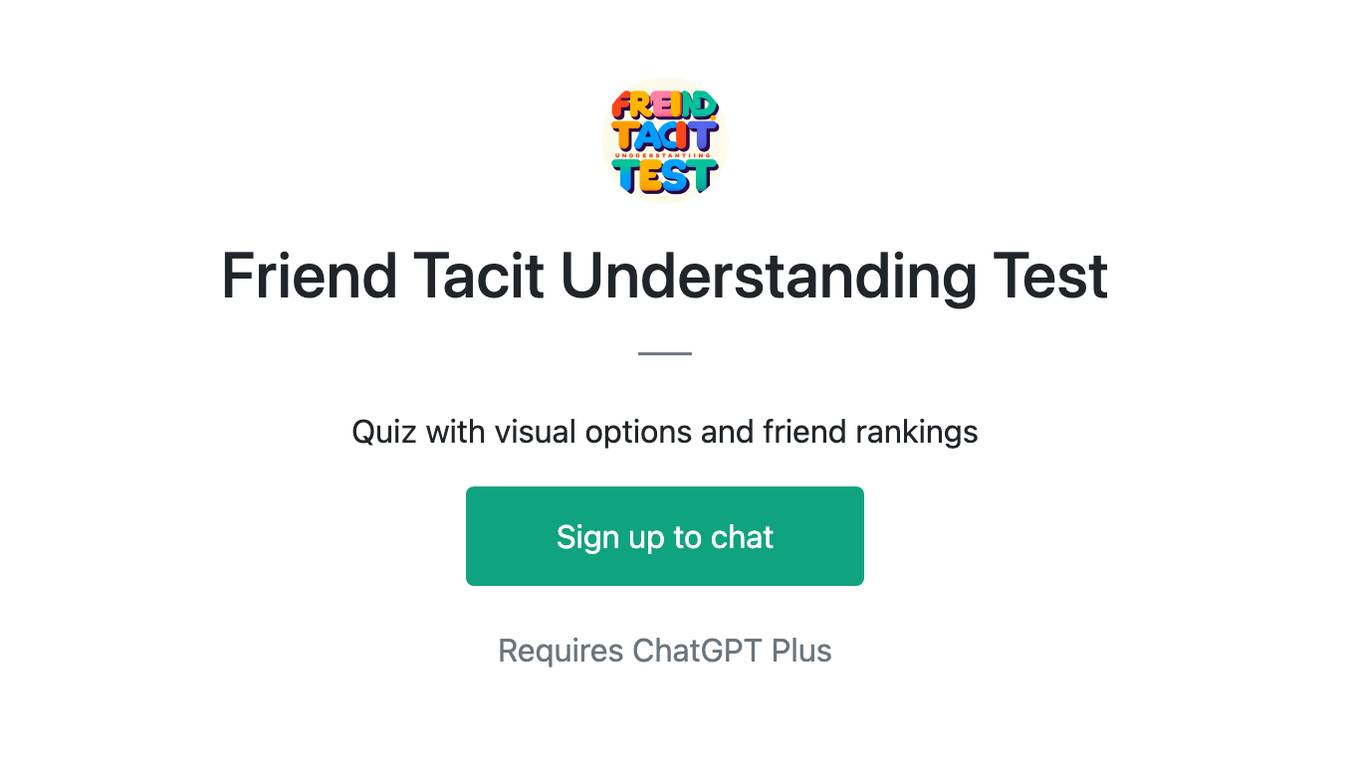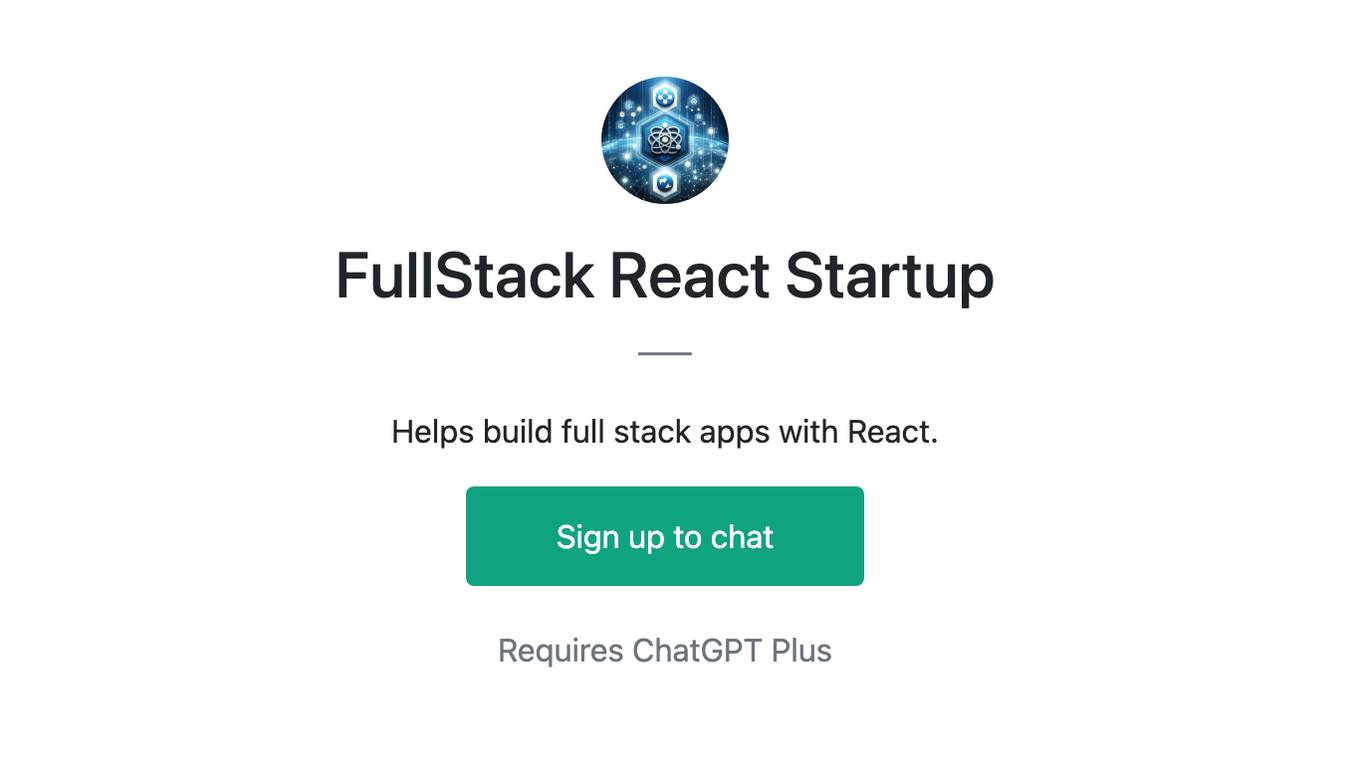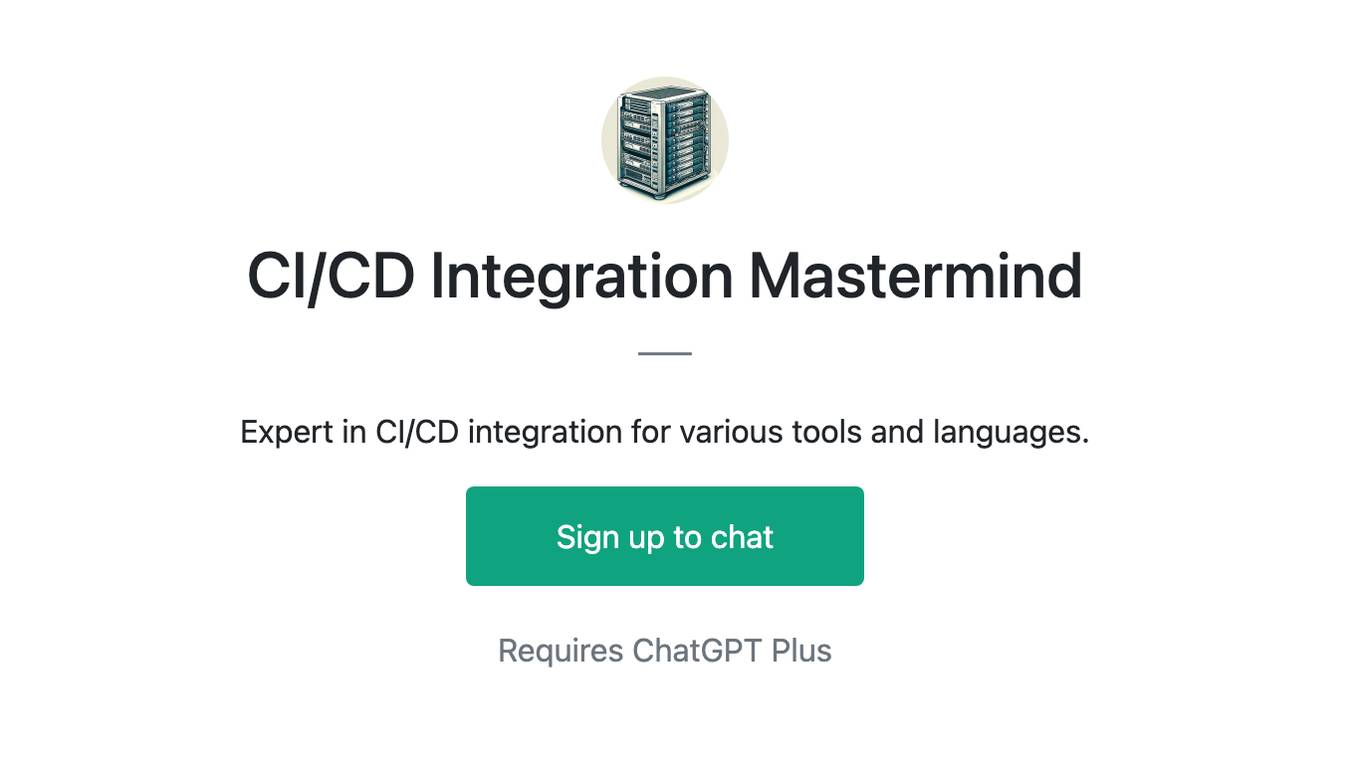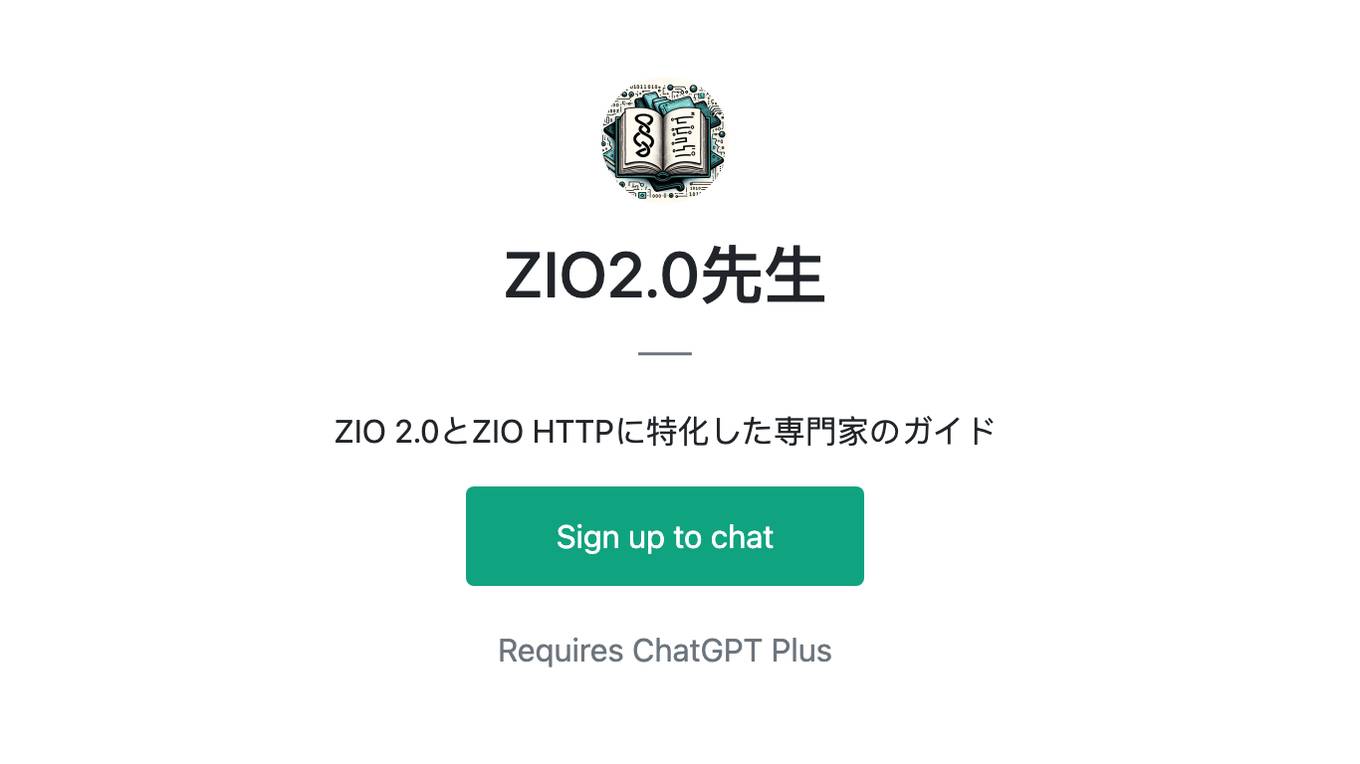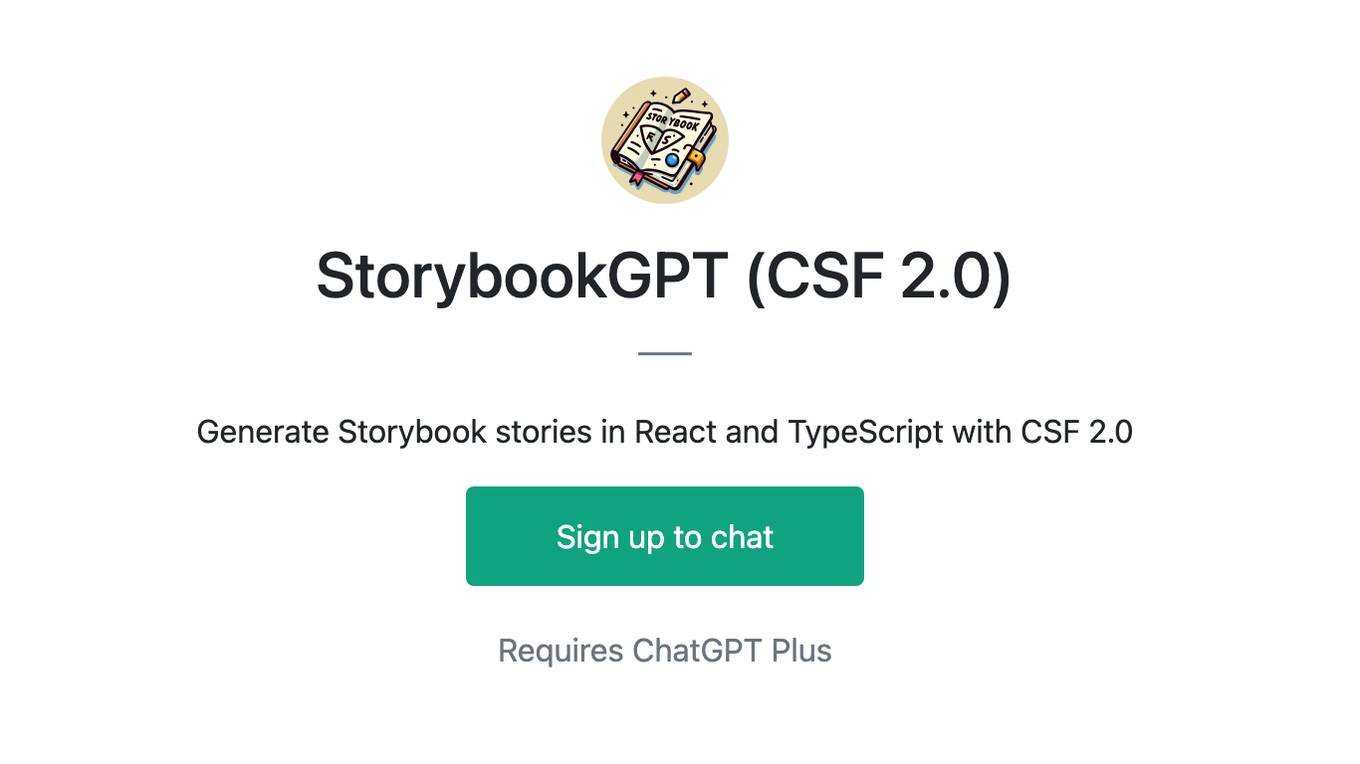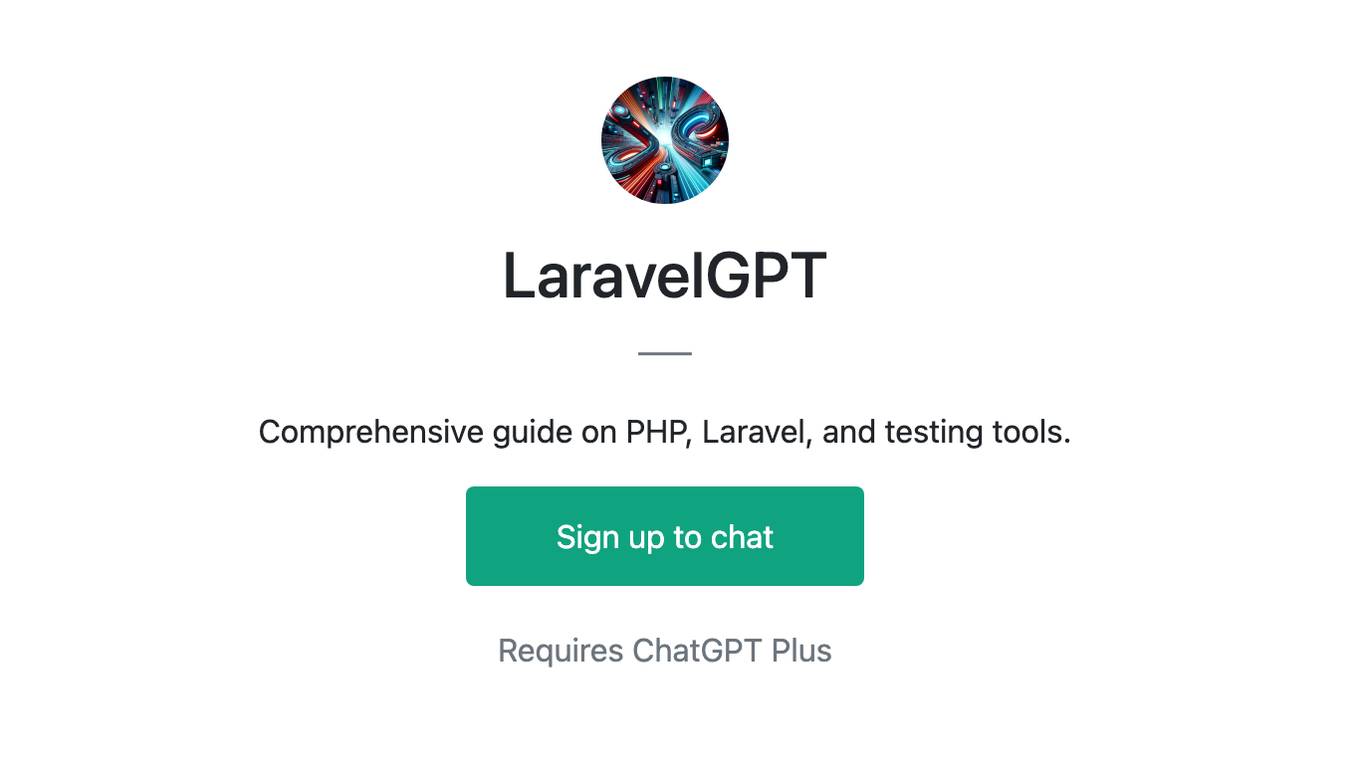Best AI tools for< Build Test Suite >
20 - AI tool Sites

BenchLLM
BenchLLM is an AI tool designed for AI engineers to evaluate LLM-powered apps by running and evaluating models with a powerful CLI. It allows users to build test suites, choose evaluation strategies, and generate quality reports. The tool supports OpenAI, Langchain, and other APIs out of the box, offering automation, visualization of reports, and monitoring of model performance.
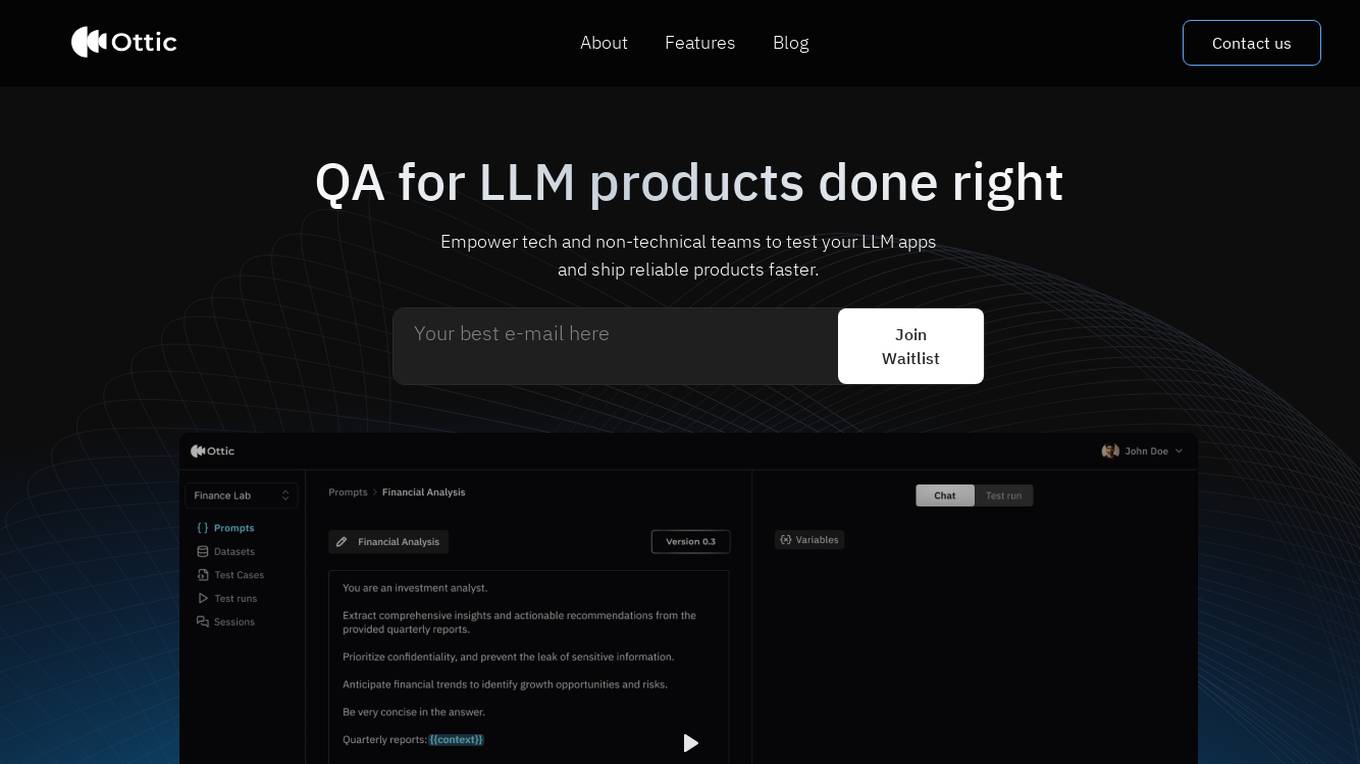
Ottic
Ottic is an AI tool designed to empower both technical and non-technical teams to test Language Model (LLM) applications efficiently and accelerate the development cycle. It offers features such as a 360º view of the QA process, end-to-end test management, comprehensive LLM evaluation, and real-time monitoring of user behavior. Ottic aims to bridge the gap between technical and non-technical team members, ensuring seamless collaboration and reliable product delivery.

KushoAI
Kusho is an AI-powered tool designed to help software developers build bug-free software efficiently. It offers the capability to transform API specs into exhaustive test suites that seamlessly integrate into the CI/CD pipeline. With KushoAI, developers can generate robust AI-generated test suites, receive AI-analyzed test results, and modify code instantly based on real-time reports. The tool is customizable to meet company's context and understands natural language prompts to produce test case code instantly. KushoAI ensures maximum test coverage in minutes, saves hours of manual effort, and adapts to the codebase to prevent missing any test cases.

Prompt Hippo
Prompt Hippo is an AI tool designed as a side-by-side LLM prompt testing suite to ensure the robustness, reliability, and safety of prompts. It saves time by streamlining the process of testing LLM prompts and allows users to test custom agents and optimize them for production. With a focus on science and efficiency, Prompt Hippo helps users identify the best prompts for their needs.
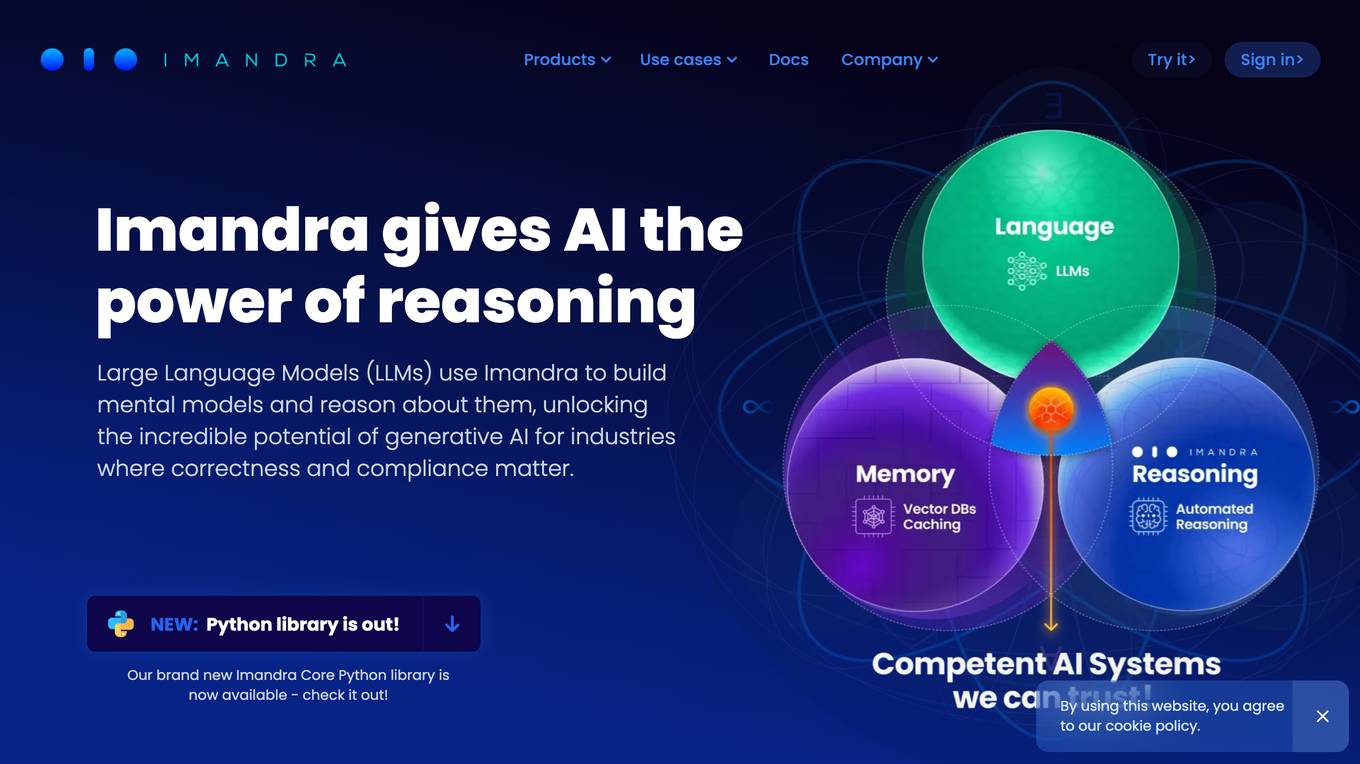
Imandra
Imandra is a company that provides automated logical reasoning for Large Language Models (LLMs). Imandra's technology allows LLMs to build mental models and reason about them, unlocking the potential of generative AI for industries where correctness and compliance matter. Imandra's platform is used by leading financial firms, the US Air Force, and DARPA.

Langtail
Langtail is a platform that helps developers build, test, and deploy AI-powered applications. It provides a suite of tools to help developers debug prompts, run tests, and monitor the performance of their AI models. Langtail also offers a community forum where developers can share tips and tricks, and get help from other users.

Retell AI
Retell AI is a powerful voice agent platform that enables users to build, test, deploy, and monitor AI voice agents at scale. It offers features such as call transfer, appointment booking, IVR navigation, batch calling, and post-call analysis. Retell AI provides advantages like verified phone numbers, branded call ID, custom analysis, and case studies. However, some disadvantages include the need for initial setup by an engineer, ongoing maintenance, and potential concurrent call limitations. The application is suitable for various industries and use cases, with multilingual support and compliance with industry standards.
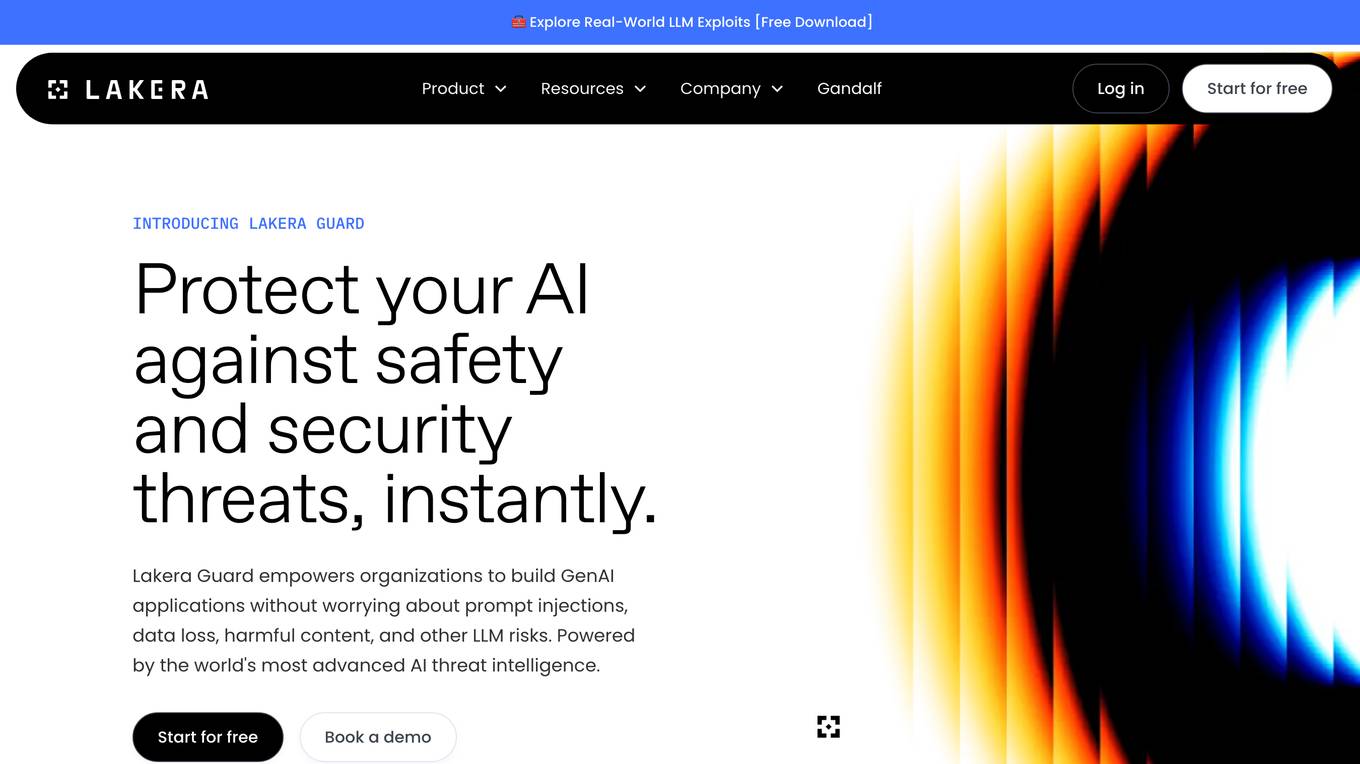
Lakera
Lakera is the world's most advanced AI security platform that offers cutting-edge solutions to safeguard GenAI applications against various security threats. Lakera provides real-time security controls, stress-testing for AI systems, and protection against prompt attacks, data loss, and insecure content. The platform is powered by a proprietary AI threat database and aligns with global AI security frameworks to ensure top-notch security standards. Lakera is suitable for security teams, product teams, and LLM builders looking to secure their AI applications effectively and efficiently.
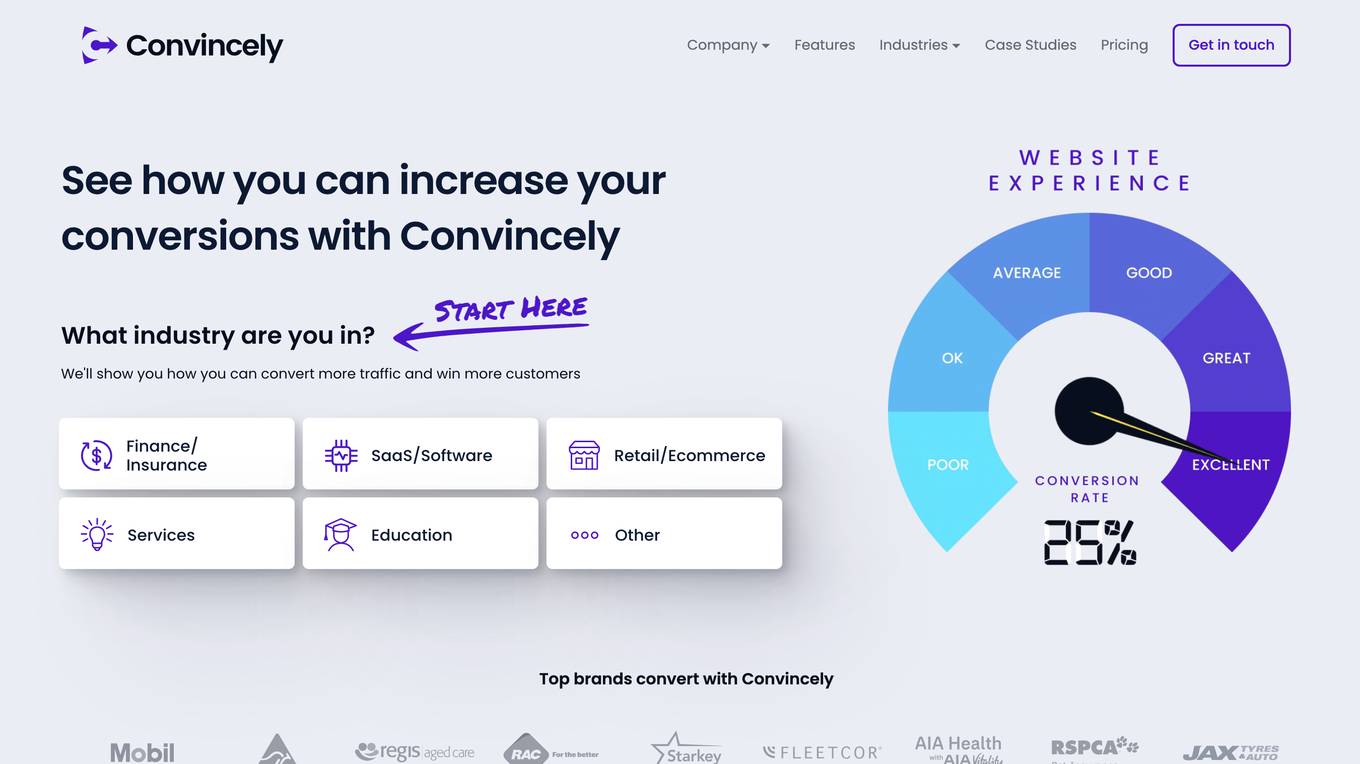
Convincely
Convincely is a digital personalization platform that helps businesses create and optimize personalized sales experiences for each customer. It offers a range of features such as a UX Conversion Library, AI Personalization Engine, and Performance & Analytics, which allow businesses to build and deploy high-converting experiences, test faster, optimize performance, and make data-driven decisions. Convincely is suitable for businesses in various industries, including finance, insurance, retail/e-commerce, services, education, and others.
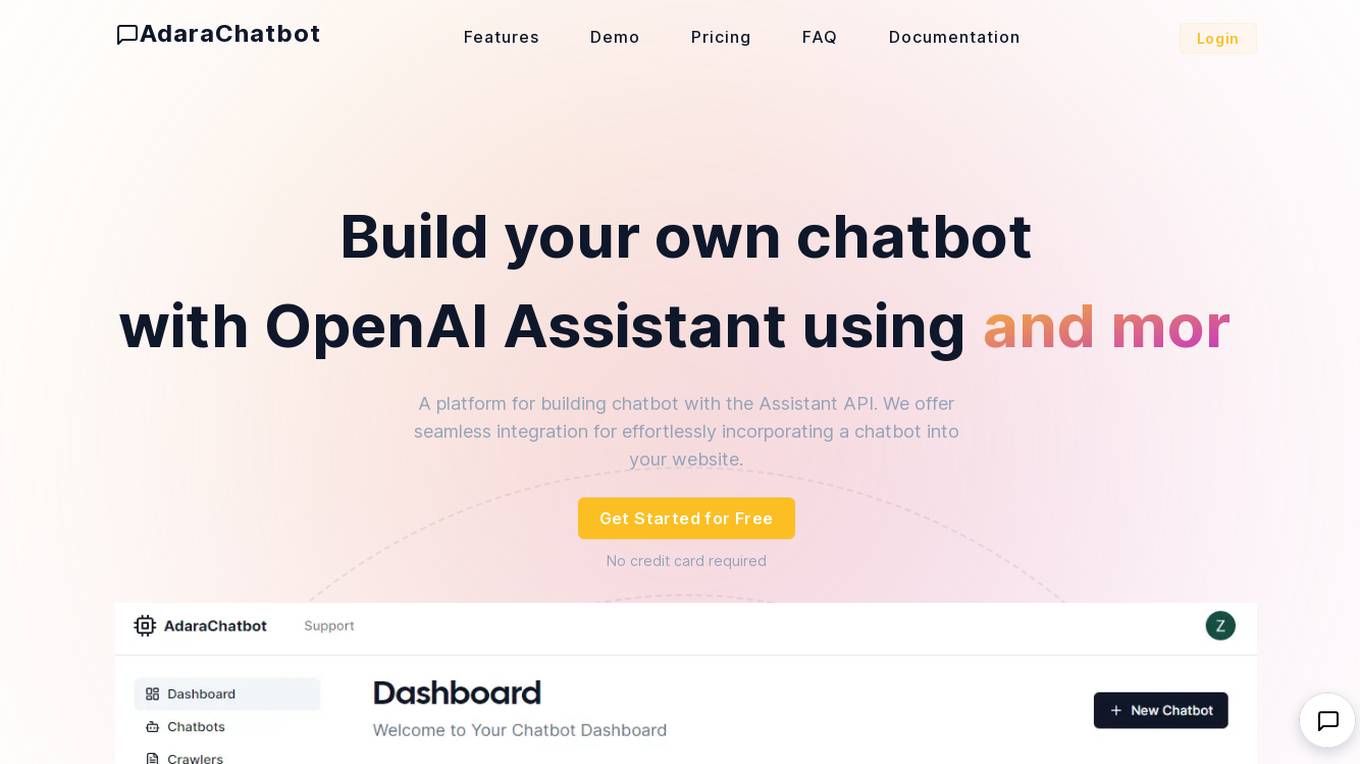
AdaraChatbot
AdaraChatbot is a platform that allows users to build their own chatbot using OpenAI Assistant API. It offers seamless integration for effortlessly incorporating a chatbot into websites. Users can test the chatbot assistant, ask questions, and receive responses powered by OpenAI Assistant API. AdaraChatbot provides features such as building chatbots with OpenAI's assistant, easy integration with websites, user inquiry with lead collection, real-time analytics, file attachments, and compatibility with popular website platforms. The application offers different pricing plans suitable for personal projects, organizations, and tailored solutions for large-scale operations.

Replit
Replit is a software creation platform that provides an integrated development environment (IDE), artificial intelligence (AI) assistance, and deployment services. It allows users to build, test, and deploy software projects directly from their browser, without the need for local setup or configuration. Replit offers real-time collaboration, code generation, debugging, and autocompletion features powered by AI. It supports multiple programming languages and frameworks, making it suitable for a wide range of development projects.
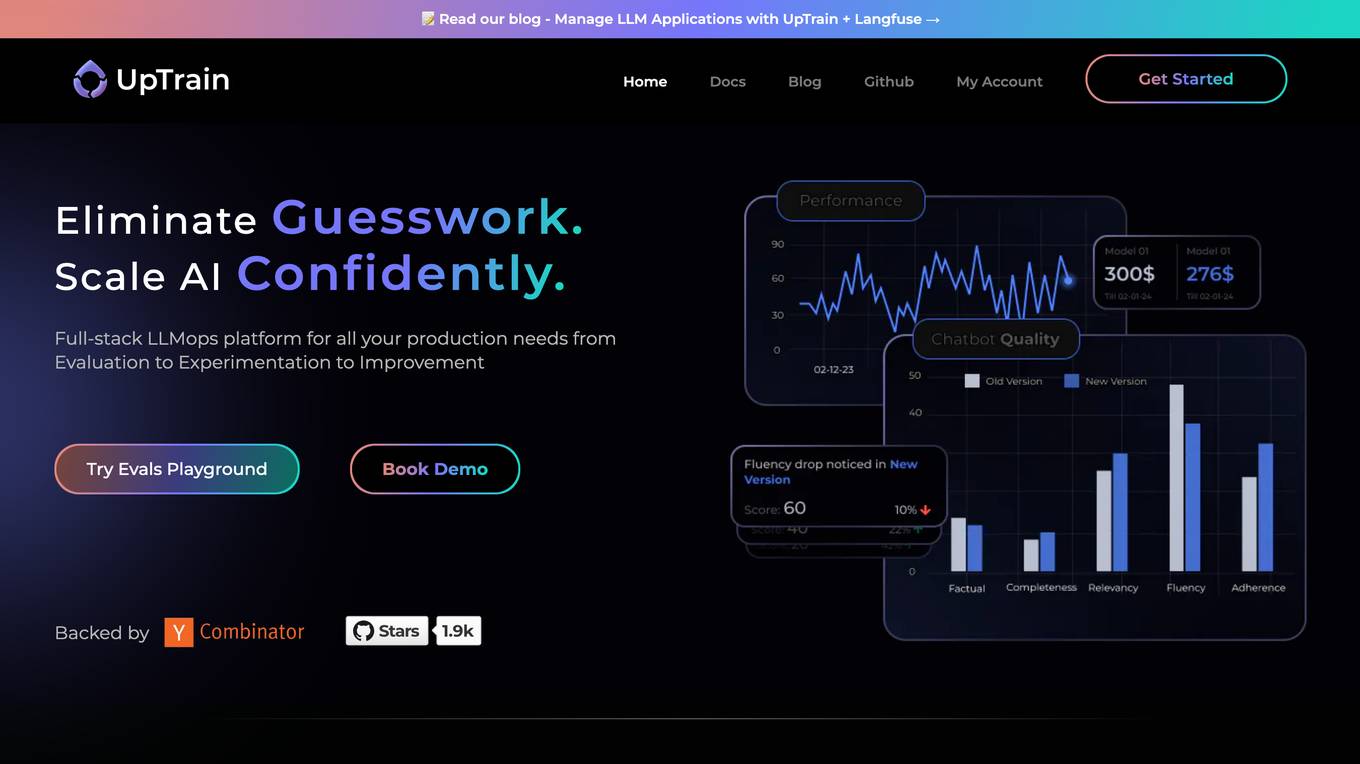
UpTrain
UpTrain is a full-stack LLMOps platform designed to help users confidently scale AI by providing a comprehensive solution for all production needs, from evaluation to experimentation to improvement. It offers diverse evaluations, automated regression testing, enriched datasets, and innovative techniques to generate high-quality scores. UpTrain is built for developers, compliant to data governance needs, cost-efficient, remarkably reliable, and open-source. It provides precision metrics, task understanding, safeguard systems, and covers a wide range of language features and quality aspects. The platform is suitable for developers, product managers, and business leaders looking to enhance their LLM applications.

Leapwork
Leapwork is an AI-powered test automation platform that enables users to build, manage, maintain, and analyze complex data-driven testing across various applications, including AI apps. It offers a democratized testing approach with an intuitive visual interface, composable architecture, and generative AI capabilities. Leapwork supports testing of diverse application types, web, mobile, desktop applications, and APIs. It allows for scalable testing with reusable test flows that adapt to changes in the application under test. Leapwork can be deployed on the cloud or on-premises, providing full control to the users.
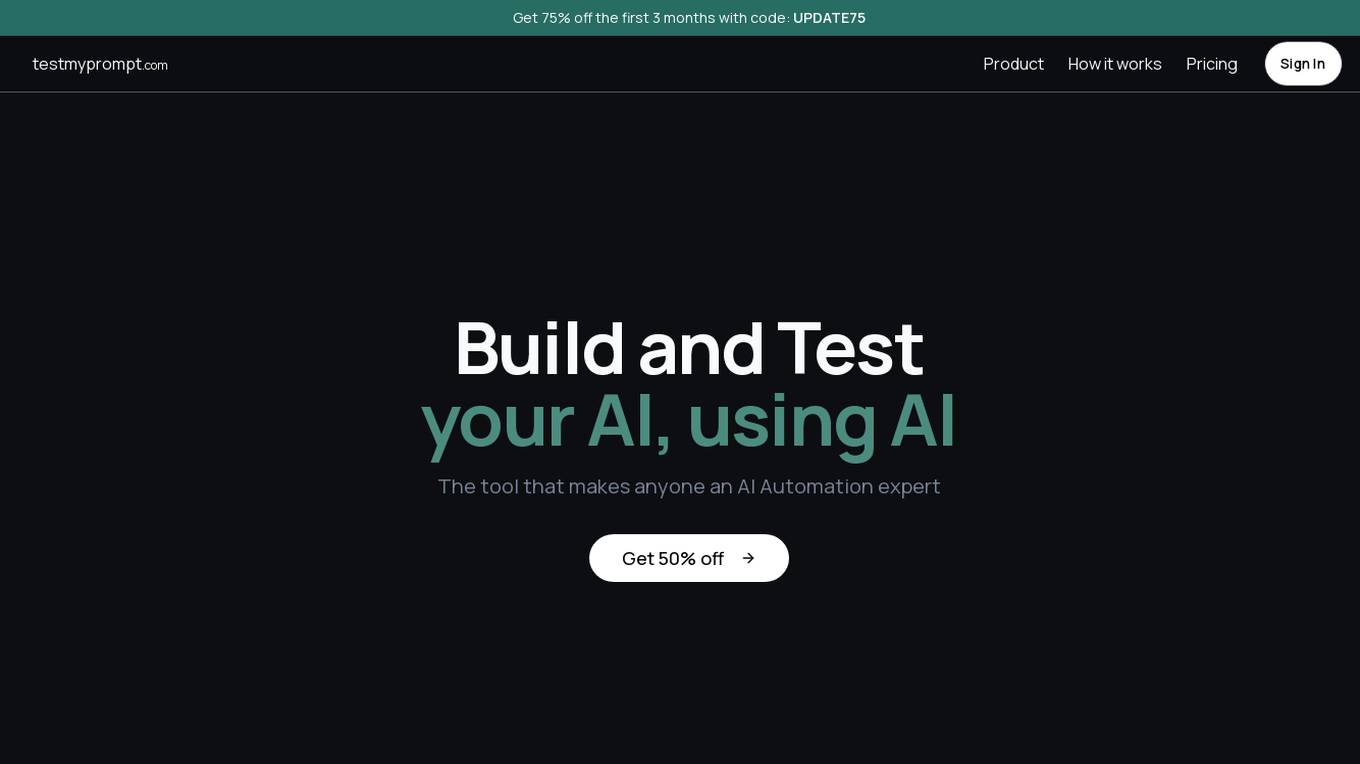
Testmyprompt
Testmyprompt is an AI prompt software designed for AI Automation Agencies. It allows users to build and test AI prompts quickly and efficiently, saving significant time and ensuring consistency in prompt creation. The tool enables users to simulate thousands of conversations in seconds, import AI settings, add test questions with variations and success criteria, and analyze AI performance to identify areas of improvement. Testmyprompt helps users optimize their AI models for better performance and customer interaction.
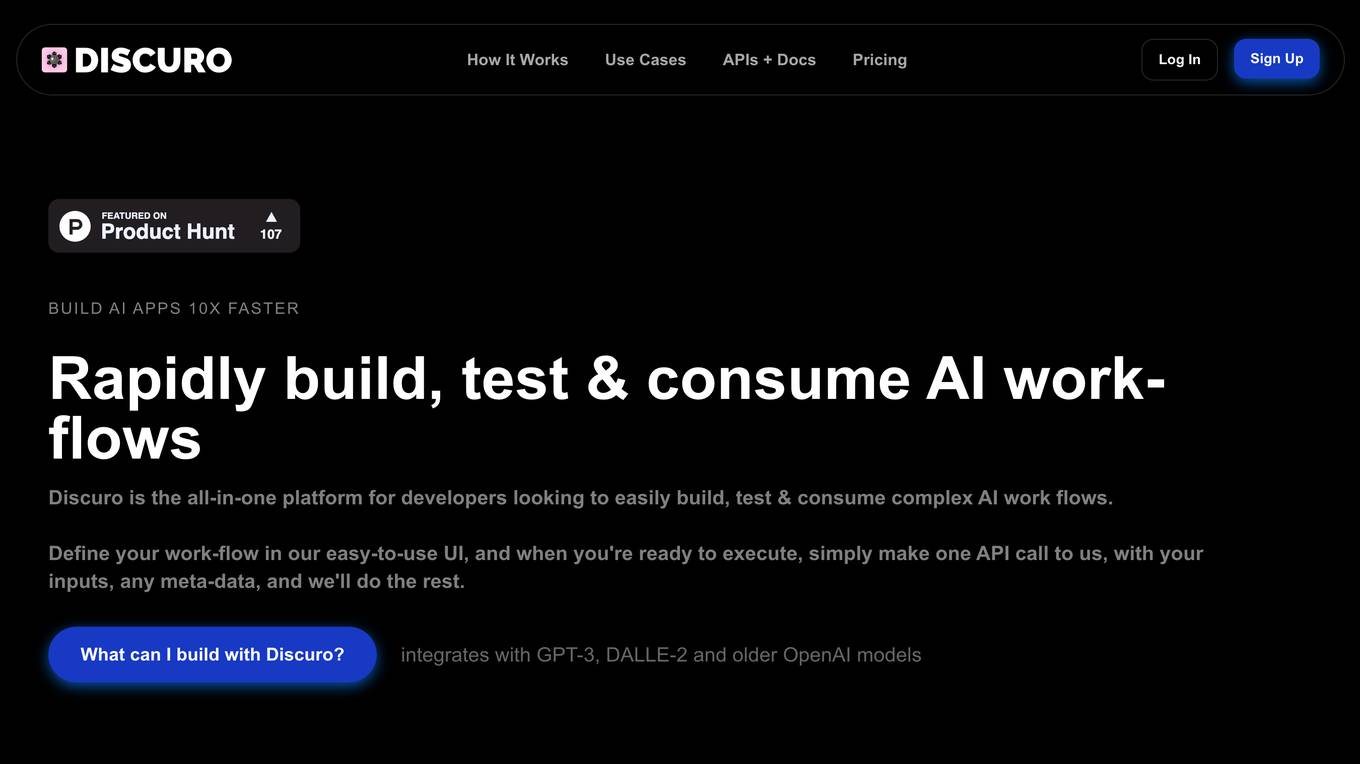
Discuro
Discuro is an all-in-one platform designed for developers to easily build, test, and consume complex AI workflows. It integrates with GPT-3, DALLE-2, and older OpenAI models, allowing users to chain prompts together in powerful ways. With Discuro, users can define their workflows in an easy-to-use UI and execute them with a single API call. The platform enables users to build and test complex self-transforming AI workflows and data sets, monitor AI usage, and generate completions efficiently.
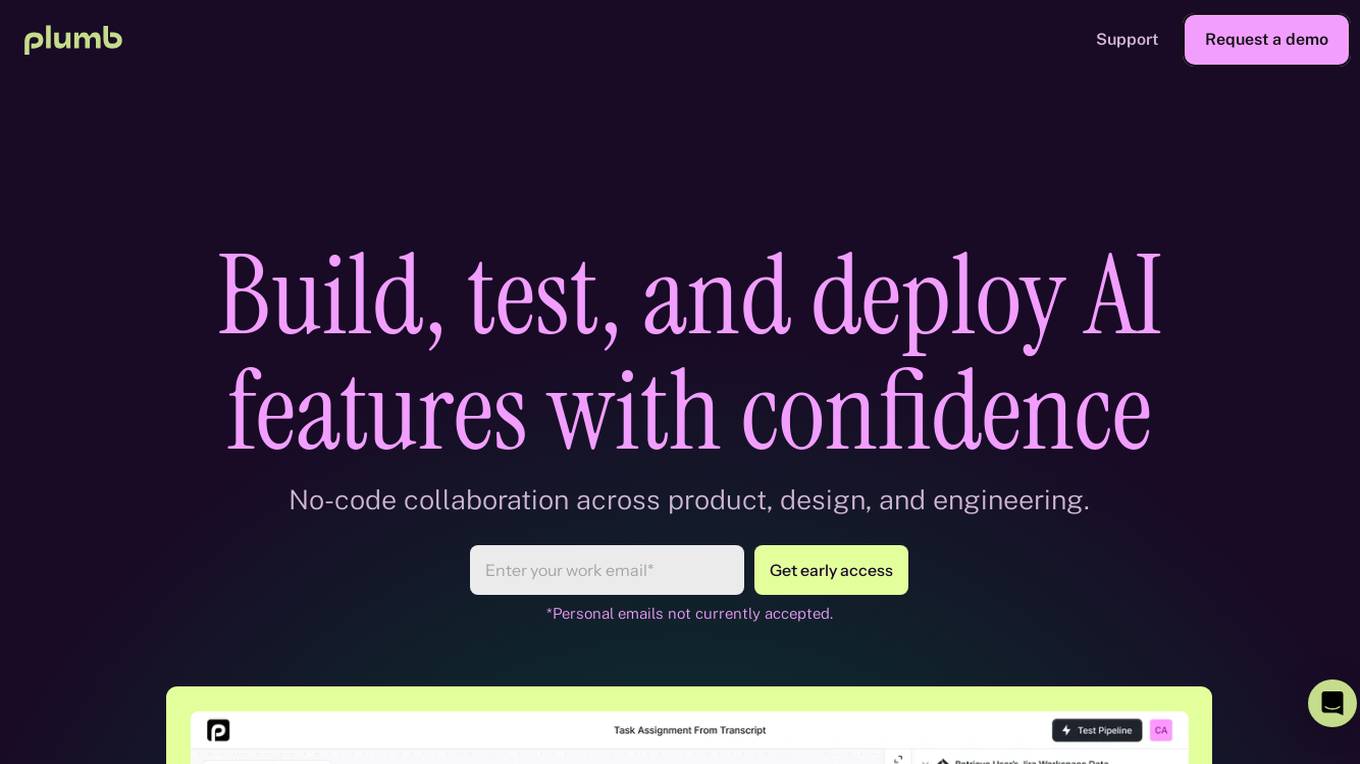
Plumb
Plumb is a no-code, node-based builder that empowers product, design, and engineering teams to create AI features together. It enables users to build, test, and deploy AI features with confidence, fostering collaboration across different disciplines. With Plumb, teams can ship prototypes directly to production, ensuring that the best prompts from the playground are the exact versions that go to production. It goes beyond automation, allowing users to build complex multi-tenant pipelines, transform data, and leverage validated JSON schema to create reliable, high-quality AI features that deliver real value to users. Plumb also makes it easy to compare prompt and model performance, enabling users to spot degradations, debug them, and ship fixes quickly. It is designed for SaaS teams, helping ambitious product teams collaborate to deliver state-of-the-art AI-powered experiences to their users at scale.
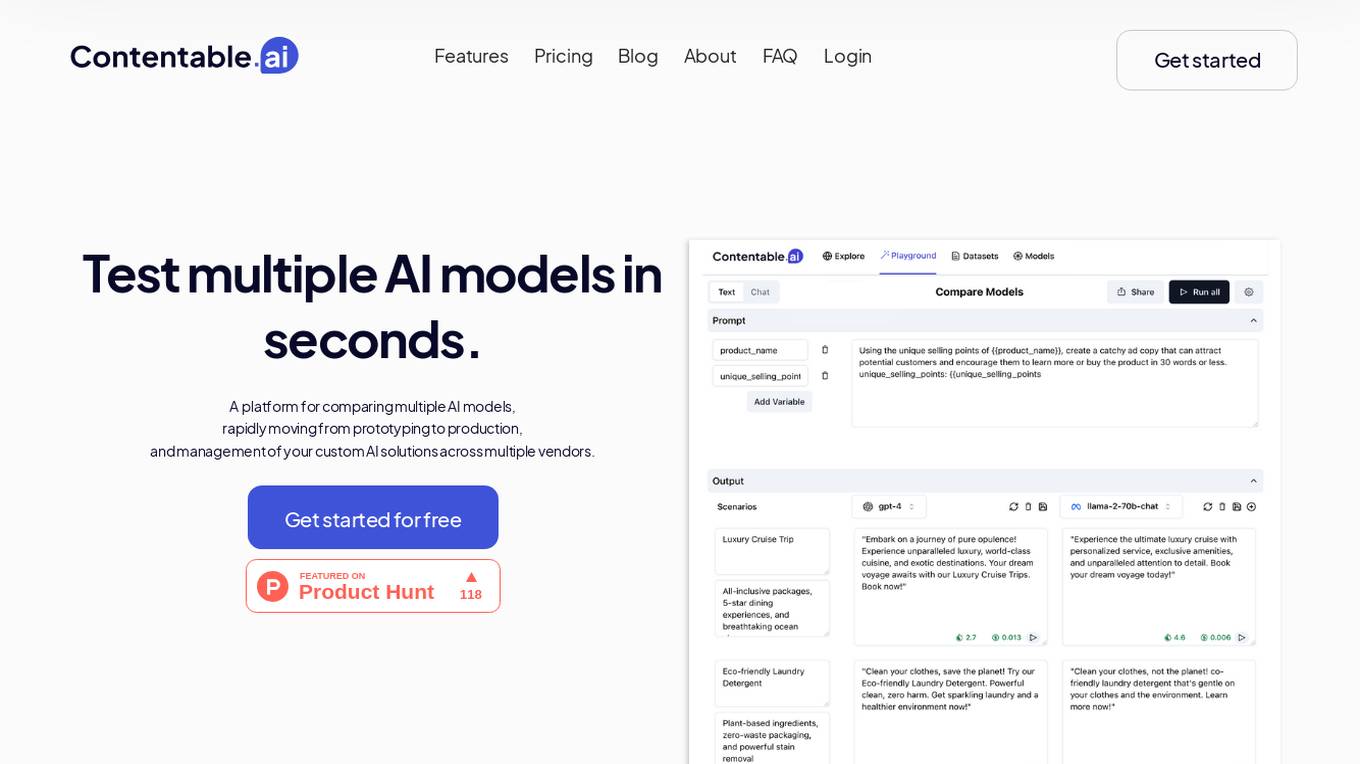
Contentable.ai
Contentable.ai is a platform for comparing multiple AI models, rapidly moving from prototyping to production, and management of your custom AI solutions across multiple vendors. It allows users to test multiple AI models in seconds, compare models side-by-side across top AI providers, collaborate on AI models with their team seamlessly, design complex AI workflows without coding, and pay as they go.
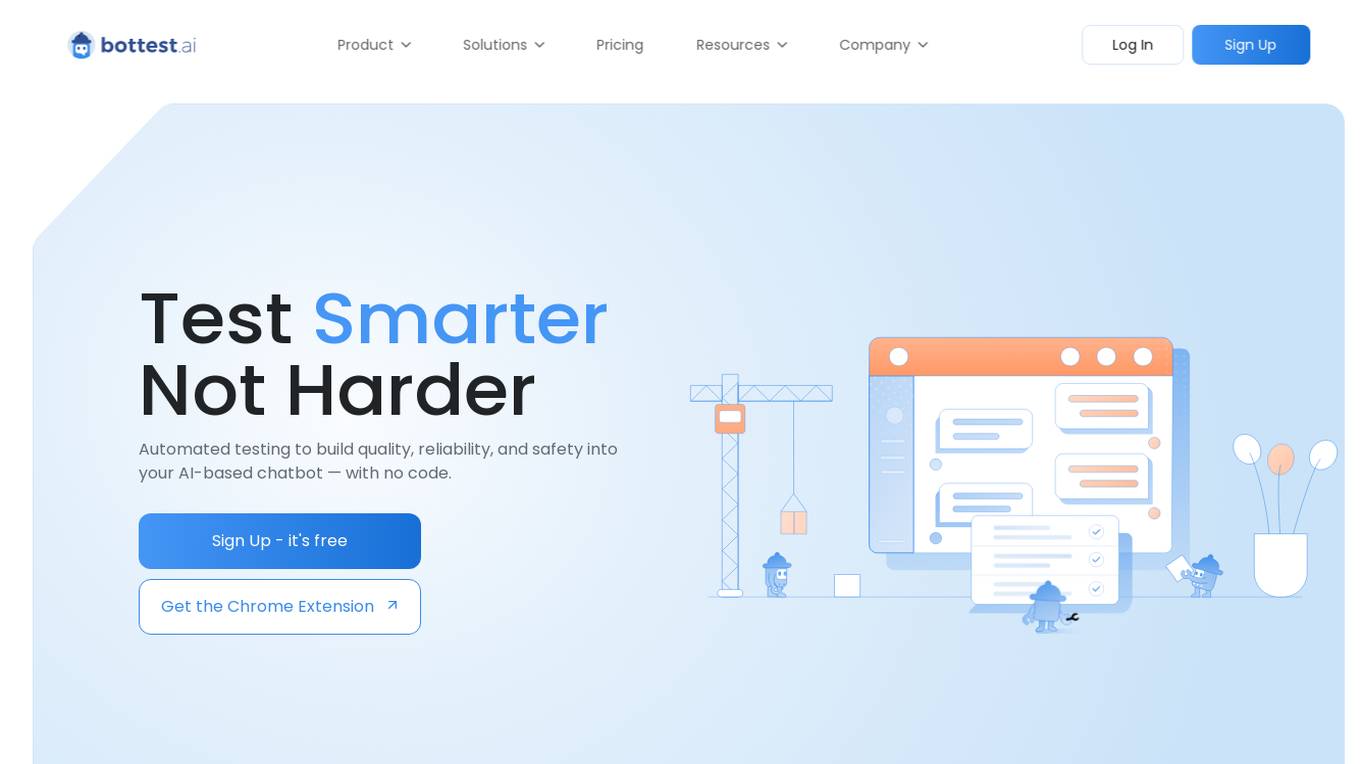
bottest.ai
bottest.ai is an AI-powered chatbot testing tool that focuses on ensuring quality, reliability, and safety in AI-based chatbots. The tool offers automated testing capabilities without the need for coding, making it easy for users to test their chatbots efficiently. With features like regression testing, performance testing, multi-language testing, and AI-powered coverage, bottest.ai provides a comprehensive solution for testing chatbots. Users can record tests, evaluate responses, and improve their chatbots based on analytics provided by the tool. The tool also supports enterprise readiness by allowing scalability, permissions management, and integration with existing workflows.
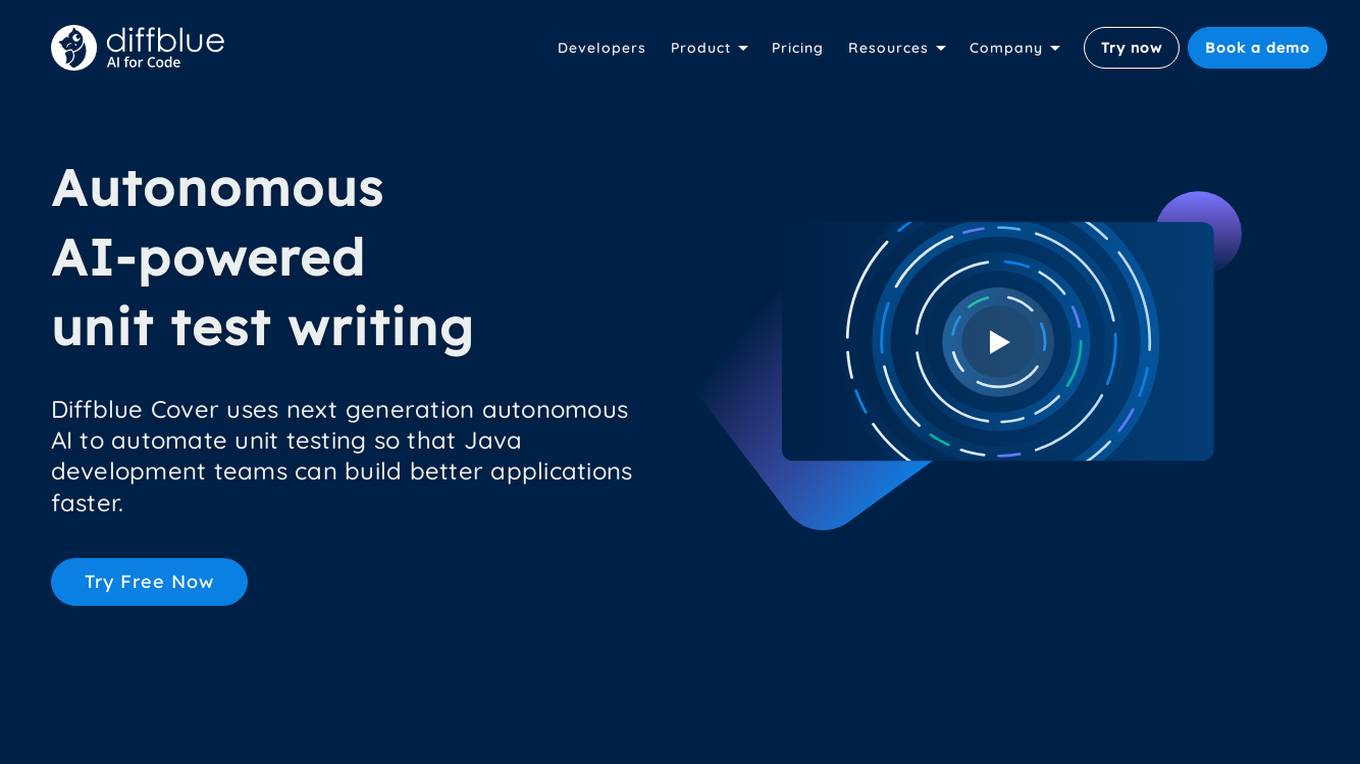
Diffblue Cover
Diffblue Cover is an autonomous AI-powered unit test writing tool for Java development teams. It uses next-generation autonomous AI to automate unit testing, freeing up developers to focus on more creative work. Diffblue Cover can write a complete and correct Java unit test every 2 seconds, and it is directly integrated into CI pipelines, unlike AI-powered code suggestions that require developers to check the code for bugs. Diffblue Cover is trusted by the world's leading organizations, including Goldman Sachs, and has been proven to improve quality, lower developer effort, help with code understanding, reduce risk, and increase deployment frequency.

Assessment Systems
Assessment Systems is an online testing platform that provides cost-effective, AI-driven solutions to develop, deliver, and analyze high-stakes exams. With Assessment Systems, you can build and deliver smarter exams faster, thanks to modern psychometrics and AI like computerized adaptive testing, multistage testing, or automated item generation. You can also deliver exams flexibly: paper, online testing unproctored, online proctored, and test centers (yours or ours). Assessment Systems also offers item banking software to build better tests in less time, with collaborative item development brought to life with versioning, user roles, metadata, workflow management, multimedia, automated item generation, and much more.
0 - Open Source AI Tools
20 - OpenAI Gpts
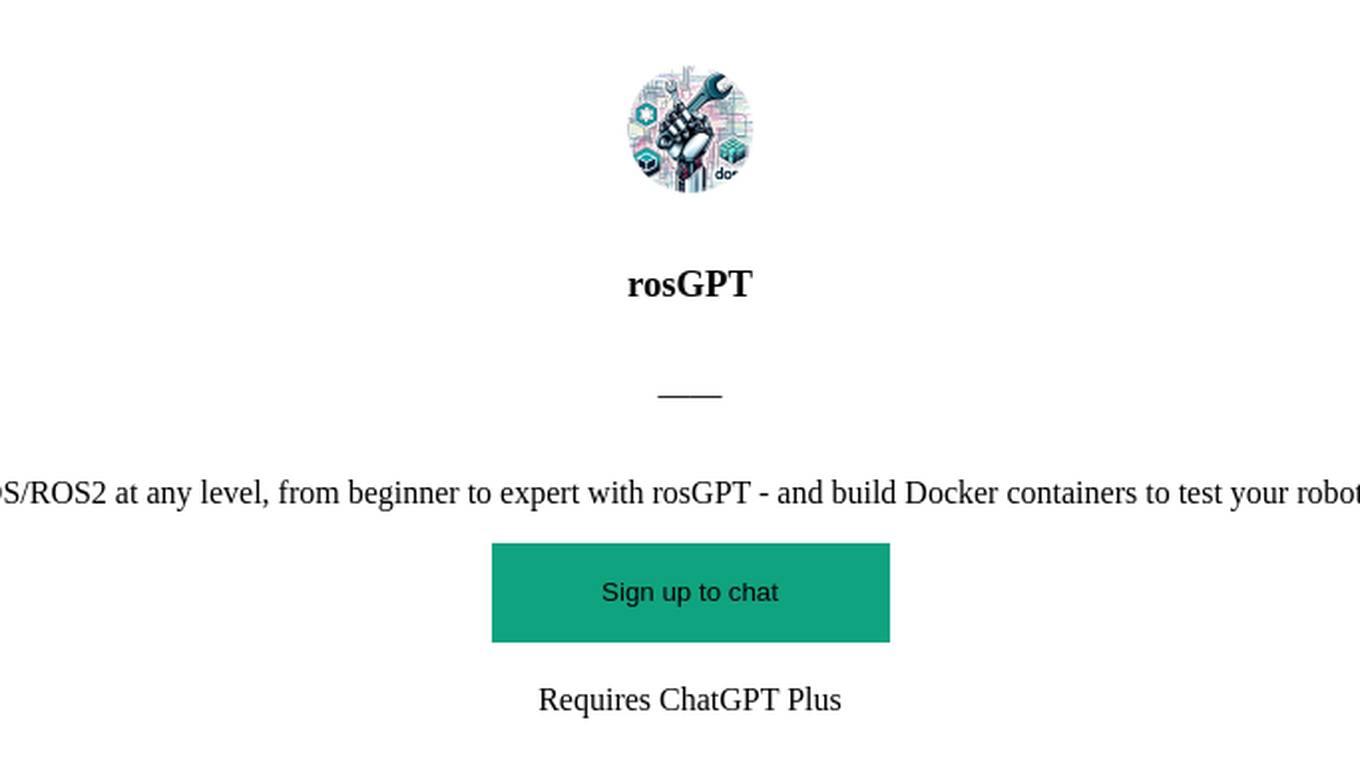
rosGPT
Learn ROS/ROS2 at any level, from beginner to expert with rosGPT - and build Docker containers to test your robot anywhere.
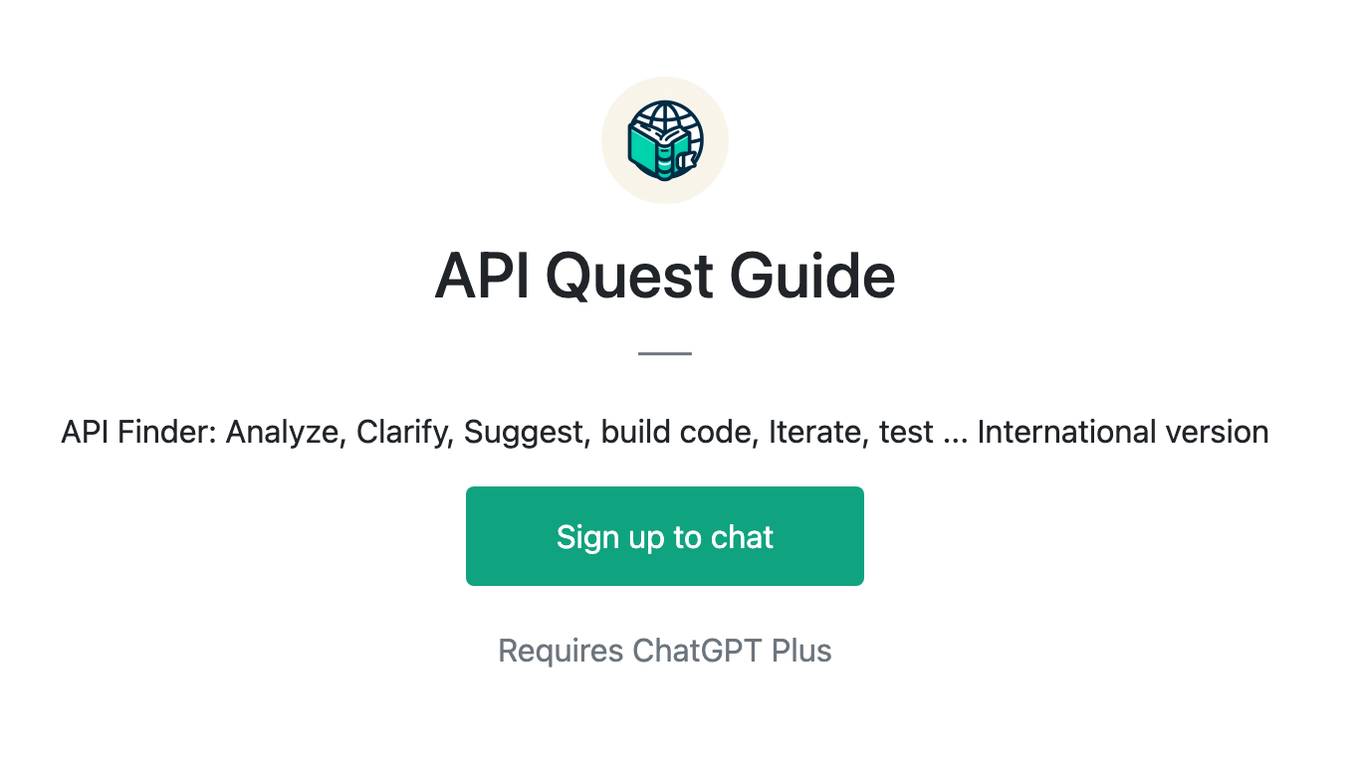
API Quest Guide
API Finder: Analyze, Clarify, Suggest, build code, Iterate, test ... International version

Cyber Audit and Pentest RFP Builder
Generates cybersecurity audit and penetration test specifications.
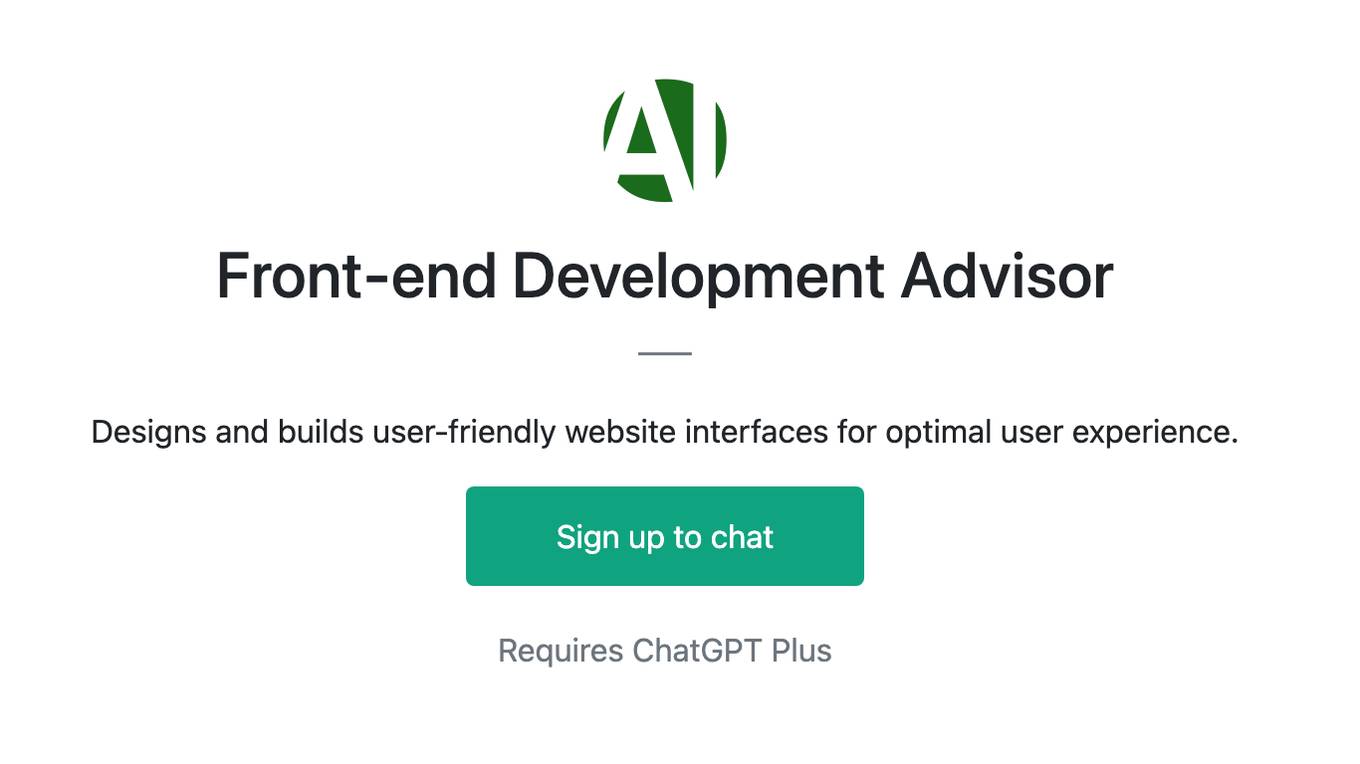
Front-end Development Advisor
Designs and builds user-friendly website interfaces for optimal user experience.

Crowdfunding GPT
Expert in crowdfunding, offering advice and insights. Search for anything about crowdfunding.
